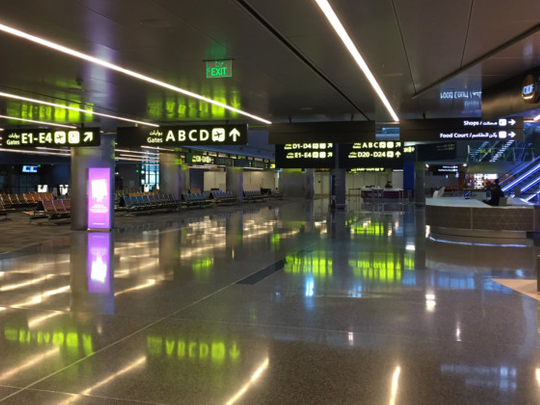
By mobilising foreign forces on its lands, Doha is trying to justify to the international community that its neighbours are threatening it, wrote the UAE’s Al Bayan. “The fact is that the boycotting Arab countries announced their position when it comes to the subversive policies adopted by Doha. These nations acted with full transparency and clarity. Arab demands represent to a reasonable extent a roadmap that Qatar can take to return to Arab ranks. The deadline extension is a precious one that reflects the Arabs’ brotherly interest and integrity in dealing with the crisis. It is unfortunate that during the past few days, Qatar’s behaviour indicates that it will continue with its policy of obstinacy. Qatar is being delusional. It thinks that it is able to deceive the international community and challenge its determination to eradicate extremism and terrorism.”
The agreement to extend the deadline is based on good intent and hope that Qatar will return to its senses, said Saudi Arabia’s Al Riyadh newspaper. “Returning to Arab ranks is not a ‘defeat’ as is perceived by the Qatari authorities or as it is presented by the Al Jazeera TV channel. Despite all the mistakes committed by Qatari authorities over the course of 20 years, the decision of Arab and Gulf nations to boycott Qatar represents to observers their true desire to awaken the conscience and reason of the Qatari leadership. No matter the decision Qatar takes, the Arab and Gulf nations have nothing to lose. Qatar is left with only two choices. It can either be a security partner in the Gulf Cooperation Council, Arab League and Organisation of Islamic Cooperation. Or, it can be an entity on the sidelines that is void of any decision-making [power] and resolve, and is attempting to forge unequal alliances with regional powers that transform into a centre of operations that works against everything that is GCC [Gulf Cooperation Council], Arab or Islamic.”
Qatar chose to play a game of high stakes and claimed its innocence even when incriminating evidence is stacked up against it, said Egypt’s Al Ahram. “Saudi Arabia chose the course of ‘enough is enough’, stating that the demands handed to Qatar by the countries boycotting it are non-negotiable. The Saudi Foreign Ministry has pointed out that the boycott conveys a message to Doha, and that message is that its neighbours have had enough. The ministry also pointed out that Qatar failed to fulfil previous commitments and promises to stop supporting and financial backing of terrorism, and also not to interfere in the internal affairs of Gulf nations. The boycotting nations have already indicated to Qatar that they will reveal more documents to prove Qatar’s involvement in financing terrorism and encouraging violence in the region.”
Lebanon’s Daily Star said that Washington’s malaise goes further than United States President Donald Trump’s attacks on the press. “If the US expects its allies in the Middle East to take it seriously, and let it take the lead on fraught issues such as the Syrian war, the fight against terror and the Israel-Palestine conflict ... Too often the White House says one thing, which is contradicted almost immediately by the State Department or Pentagon.”





_resources1_16a31069e4e_small.jpg)






